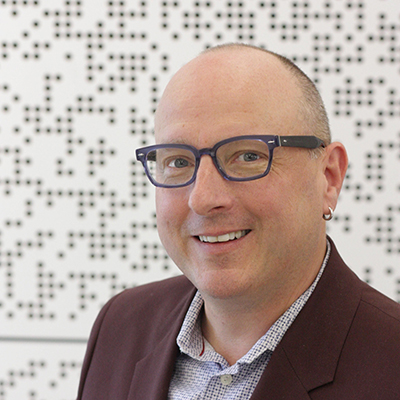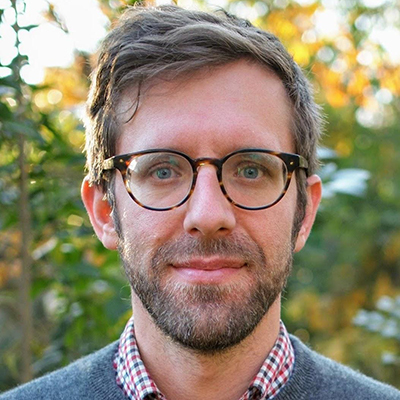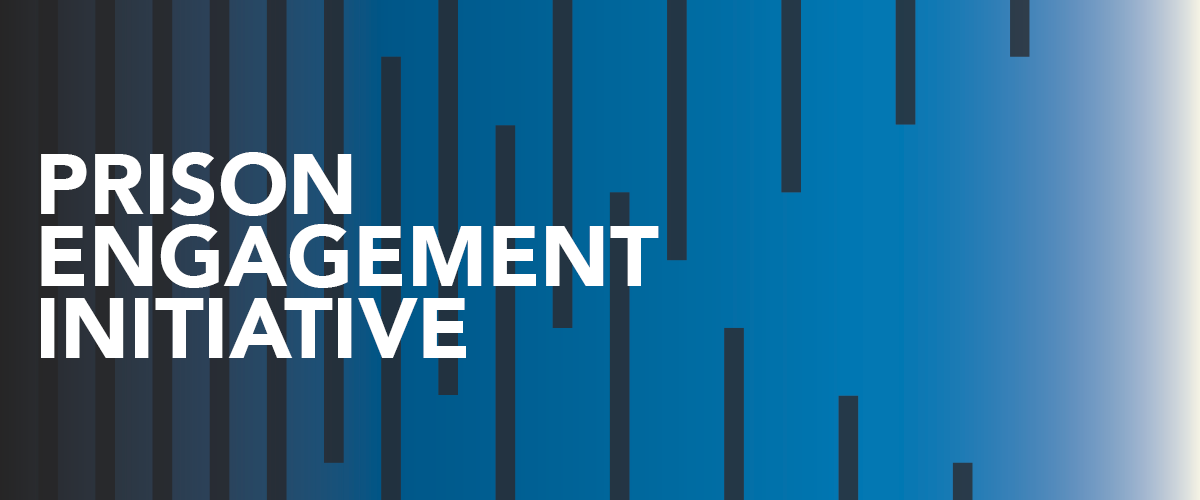The Prison Engagement Initiative is an interdisciplinary network of faculty, staff, students, and community members based at Duke University committed to engaging prisons, the people affected by prisons, and the politics and pathways surrounding mass incarceration.
The Prison Engagement Initiative offers ways for faculty, staff, and students across Duke to shape relational networks of learning and change with people impacted by prison. It aims to transform perspectives, approaches, and practices surrounding incarceration as well as the relationship between universities and prisons.
At the end of 2023, PEI launched four efforts — in prison education, undergraduate education, reentry, and restorative justice — each with a goal to impact how Duke engages prisons and the criminal legal system.
Efforts
CERTIFICATE IN CARCERAL STUDIES
We are working to prepare a Certificate in Carceral Studies. There is not currently a curricular offering for students interested in this topic, even though there are many courses on it across campus. It is our ambition to give students an interdisciplinary expertise in the phenomenon of mass incarceration. We are also committed to giving students an actual experience of the system. This could be done by taking a course in prison and learning alongside incarcerated students; it could also involve work with re-entry organizations or restorative justice programs. If approved, we hope to launch the Certificate in Spring 2025.
DUKE PRISON TEACHING
Duke Prison Teaching, launched in February 2024, is a group of Duke faculty and graduate students committed to offering Arts & Sciences courses to incarcerated students as part of a degree program. Because this effort requires quite some time, Duke Prison Teaching intends to offer other kinds of educational enrichment in correctional facilities in the interim.
Our primary activity right now is running a lecture series at FCI Butner, a federal prison.
Previous and upcoming lectures are listed below:

“From the Invisible Hand to Supply and Demand:
An Introduction to What Markets Can and Can’t Do”
Jason Brent
August 22

“Britain in World War II – And How to Become a Historian”
James Chappel
October 10
We are also exploring reading groups, workshops, and other forms of educational enrichment in other facilities. Please write to Alex Gibbons at alexandra.gibbons@duke.edu if you would like to join Duke Prison Teaching.
PIEDMONT PRISON CONSORTIUM
The Piedmont Prison Consortium (PPC), launched in January 2024. The PPC is a consortium of five universities: Duke, NCSU, NCCU, UNC-Chapel Hill, and UNC-Greensboro. These universities — all members of an existing inter-institutional credit sharing agreement — would each participate in the formation and administration of a degree-granting program in a prison in the region. Representatives from each university as well as an advisory committee of formerly incarcerated people meet regularly.
Our ultimate goal is to provide a degree-granting pathway for incarcerated students in central North Carolina.
REENTRY
We have two avenues for our effort on reentry: hiring at Duke and reentry support in Durham.
Our hiring effort is dedicated to the improvement of Duke’s hiring practices in relation to justice-involved people. It seeks to build on Duke’s existing values, commitments, and strengths by promoting a clear, fair, and constructive, policy, at every level, in the hiring and support of justice-impacted people.
We also aim to support existing reentry efforts in Durham. Our goal is to familiarize ourselves with community organizations already doing this work, listen to individuals who going through reentry, and explore ways we can deepen these relationships.
RESTORATIVE JUSTICE
Our effort on restorative justice is dedicated to the promotion of a restorative culture at Duke at every level—among faculty, staff, students, and community partners. A restorative culture is a response to the infliction of harm that does no further harm; rather, it invites both those harming and those harmed to restore, to heal, and to transform, their damaged relationships through the practice of restorative justice. (The dominant current response to harm—”retributive” or “punitive”—proceeds by inflicting further harm.) The promotion of a restorative culture takes place through education into and the adoption of the principles, programs, and practices of restorative justice.
Members
Cross-Duke PEI Network
In 2022–23, we convened a Strategic Listening Team to map Duke’s existing engagement in prisons, to learn about each other’s work, to meet community partners in the Triangle area, and to envision the shape and orientation of an ongoing cross-disciplinary prison initiative at Duke University.
Ways To Get Involved
In 2024-5, the Prison Engagement Initiative continues to gather Duke faculty, staff, and graduate students with practical experience or academic interest in prisons to be part of monthly lunchtime meetings throughout the academic year. This team will continue to map Duke’s existing engagement with prisons and hear from community groups in the Triangle area.
The Prison Engagement Initiative will meet on Wednesdays from 12:30 – 2:00pm on the following dates in the Academic Year 2024–25:
- September 11
- October 9
- November 13
- January 15
- February 12
- April 9
- April 30
The Prison Engagement Initiative hosts a newsletter sent out on Fridays that shares events and programming related to prisons and incarceration at Duke and in Durham. If you would like to have an event featured, please let us know as far in advance as possible. Contact program coordinator Jac Arnade-Colwill at jac.arnade-colwill@duke.edu if you would like to sign up for the PEI newsletter or make submissions.
In line with our core belief that effective engagement with the criminal legal system requires interdisciplinary effort, we hope to cultivate an environment where graduate students can develop relationships with individuals from a variety of disciplines who share similar interests in the criminal legal system. The PEI Graduate Student Network will meet monthly, sharing ideas, concerns, and hopes for how such collaboration might impact their studies, their time here at Duke, and their future professions. These graduate students will be interwoven with the larger PEI network and to our ongoing efforts.
This cohort will be led by graduate assistant Meredith Manchester. Prior work or study related to the criminal legal system is not required, but a demonstrated interest in criminal legal reform is strongly preferred. Please email Meredith a brief statement of interest at meredith.manchester@duke.edu.
Volunteer-Based Groups
Seeks to repair harm caused by wrongful, though not determinative, actions. Primarily used as an alternative to the local criminal legal system but intersects other harms as well. Volunteers accepted on a rolling basis. Training required.
Email if interested: restorativejusticedurham@gmail.com
These teams are organized through Religious Coalition for a Non-Violent Durham, but they do not require any religious affiliation. They simply require a commitment to provide community to an individual coming out of incarceration. Teams consist of 4-5 people and a participant. The goal is to hang out every other week and provide intermittent communication as needed. Training required. 1-2 year commitment suggested.
Email if interested: meredith.manchester@duke.edu
Again, despite the name, this does not require any religious affiliation. Connect with individuals in Durham County Jail who have requested relational support. Right now, volunteers are only permitted to partake in video calls, which are scheduled at the volunteer’s convenience. No training required. No time commitment requested, but keep in mind this is supposed to be relational. Organized by St. Philip’s Episcopal.
Email if interested: msistrom@gmail.com
This organization receives and fills requests from incarcerated persons for specific reading material. One-time volunteers are welcome. However, Prison Books is also seeking a volunteer who is able to commit 2-4 hours per week printing and sending zines to incarcerated persons across the United States, as their current volunteer hopes to retire this fall.
Email if interested: prisonbooks@gmail.com
An organization that sends newsletters to incarcerated persons and advocates for their basic needs on an individual basis.
Email if interested: nccure247@gmail.com
NCCIW Christian Worship
There is a religious component to this opportunity, as it is facilitating Christian worship at NCCIW. Involves regular participation in a Sunday service or restricted housing (i.e. solitary confinement) ministry every fourth Friday of the month.
Email if interested: meredith.manchester@duke.edu
Local and Statewide Campaigns
“This year, we will be exploring the possibility of adding up to $1,000,000 to Durham’s Guaranteed Income (GI) pilot program. The pilot ran from February 2023 thru February 2024 and provided $600 per month to 109 formerly incarcerated Durhamites. Participants saw significant improvements in their quality of life, and none of the 109 participants reoffended during their year of receiving GI.”
A campaign of Disability Rights North Carolina. “The End Solitary NC campaign, which started as a part of a reform effort to increase racial equity and fairness in NC’s criminal justice system under DRNC’s unique and critical focus on disability advocacy, remains united and committed to ending solitary confinement in NC prisons.”
NC Coalition for Alternatives to the Death Penalty
“The North Carolina Coalition for Alternatives to the Death Penalty is a statewide coalition of member organizations and individuals committed to ending the death penalty and creating a new vision of justice. We are dedicated to broad criminal legal reform rooted in restorative justice. We work with and educate lawmakers, communities, and the public about the racist, unjust and ineffectual death penalty system.”
“Through community education, narrative shift, and litigation, Emancipate NC supports North Carolina’s people as they free themselves from mass incarceration and structural racism.”
*Did we miss your organization or campaign? Please email us at meredith.manchester@duke.edu and jac.arnade-colwill@duke.edu and let us know.*
If you have questions about the Prison Engagement Initiative, please contact Jac Arnade-Colwill at jac.arnade-colwill@duke.edu.
























